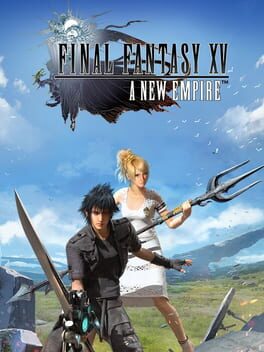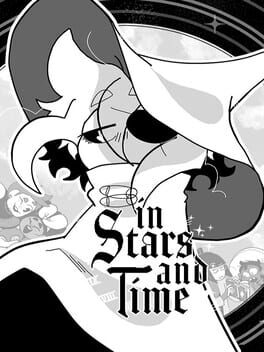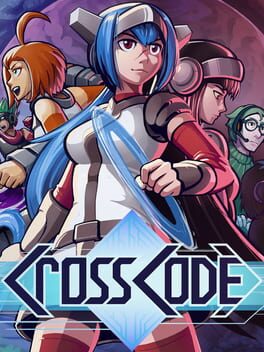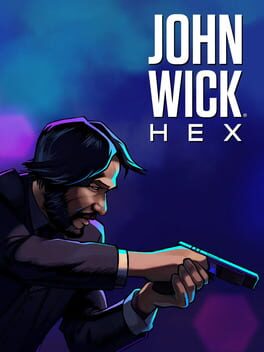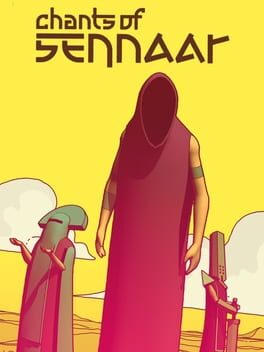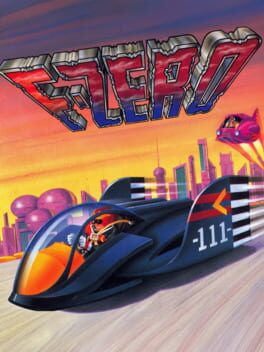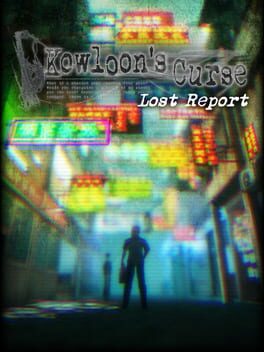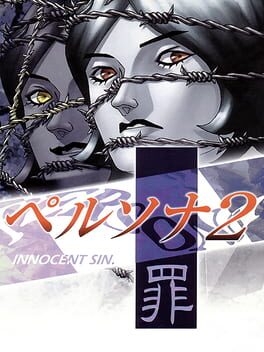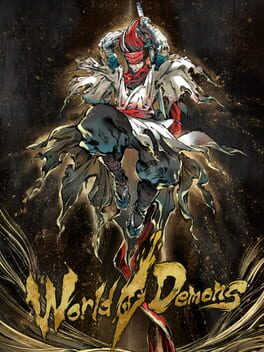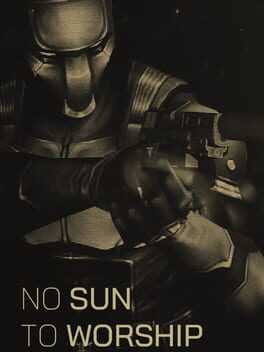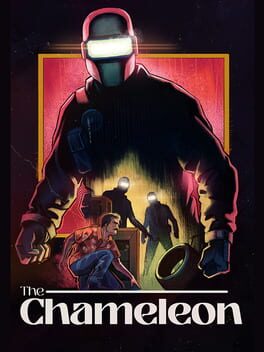mospina
163 Reviews liked by mospina
i dunno, let's keep this quick. to say it's a bit clumsy is an understatement - and there are certainly aspects of the overall narrative i struggle with - but the depths of its sincerity won me over. i have no particular attachment to yakuza 7 either, and in fact i find much of that game to be very awkward, stilted, and grating so ultimately no one's more stunned than myself here.
when it's not luxuriating in this chilled-out ocean's twelve vibe which i loved, infinite wealth is written with far more intentionality and consideration than most entries in the series; while one might accuse of it of verging on threadbare or cloying for its strict emphasis on theme, i think the game trusts its audience to take some of the emotional leaps necessary to make the storytelling work. character writing for the leads and the party members has seen a dramatic improvement across the board. ichiban as usual brings a lot of levity to the table - thankfully none of it quite as irritating in the zany sense as 7 liked to employ - but kiryu's portions of the game are comparatively sobering. collecting memoirs has a weird psychological effect at times but the series has earned the right to do this by this point given how much of the kiryu saga can feel siloed or compartmentalized - in the same vein as gaiden, the game almost damns him for this, for never taking a chance to stop and reflect, for the consequences of his interminable martyr complex
that tendency to bury the past is only contrasted further by infinite wealth being maybe the most direct sequel the series has seen yet - the events of that game are still fresh in everyone's mind and sets the stage for the overarching conflict and everyone's investment in said conflict. it's a surprisingly natural extension of a lot of 7's themes, and i found it worked better for me this time. 7 often felt more gestural than anything else - to me it balanced far too much as this metaphorical (and literal) tearing down of the old ways, handling the introduction of a new protagonist, paying lipservice to series veterans and setting up parallels to the original ryu ga gotoku. infinite wealth to me feels more fully-formed, more confident; i think the team was able to use this title's unique hook and premise to really bring the most out of 7s promise of something new, and it could only have achieved it by taking the time to reflect on the past.
to this end: they made the game a JRPG this time, that counts for something. and not just a JRPG but one that feels as close to traditional RGG action as possible. some excellent systems this time with a lot of fascinating interplay and the level curve is fantastic. not necessary to sum up all the changes, you've seen them, but they really promote a lot of dynamic decision-making with respect to positioning and once you figure out how status effects can correlate with them you feel like your third eye's opening. very fond memories here of navigating around a crowd of enemies - some of whom have been put to sleep - and figuring out how best to maximize damage without waking anyone drowsy up. lots more strategy and enjoyment to be had here than pretty much anywhere in 7.
that said, i know RGG prides themselves on the statistics relating to players completing their titles, but they could really afford to take a few more risks with enemy waves in the main campaign. i felt like my most interesting encounters were usually street bosses or main story bosses, but the main campaign's filled with trash mobs. and i'm not saying every fight has to be some tactician's exercise - in fact i think that's the opposite of what people actually would enjoy - but i really wish the game took the time to play around even more with positioning. there are some exciting scenarios in the game that are too few and far in-between. stages that split up the party, encounters with unique mechanics...would really liked to have seen more in that vein.
some extra notes - would like to dig a bit deeper into the strengths of the narrative as well as some additional hangups but i can't be assed to write more
- honolulu's great, it gets probably a little too big for its own good but it's a real breath of fresh air for most of the game
- yamai is the best new character they've introduced in years
- dondoko island feels like a classic yakuza minigame in the best possible way, might even represent the apex of this kind of design. not obscenely grindy but just something casual and comfortable with enough layers to dig into without being overwheming and enough versatility to express yourself. shame you can't really say the same for sujimon!
- kiryu's party is disarmingly charming and they have some insanely good banter
- despite what some have said, i think this is a good follow-up to gaiden. it's not explicit about it but this is still very much a reckoning with kiryu's character and his mentality; it is every bit as concerned and preoccupied with the series mythos, the core ideas and conflicts driving a lot of installments
- honestly found the pacing to be on-par for the average RGG title if not better. i can concede that the dondoko island introduction was a bit too long but that is the most ground i can afford. if we can accept y5 into our hearts we can accept infinite wealth; IW makes y5 look deranged for its intrusiveness despite both titles occupying a similar length. if any of it registers as an actual problem, i think people would benefit from revisiting yakuza 7 to find it is almost exactly the same structurally if not worse
- IW is home to maybe the best needle drop in the medium
- played in japanese, like i usually do, so no real interest in commenting on the english dub since it's not real to me but i will say that what i listened to seemed like a bit of a step back from the dub quality in previous RGG games. yongyea isn't a convincing kiryu either and while i could be a bit more of a hater here all i will say is there is a STAGGERING whiplash involved in casting a guy like that as the lead in a game with themes like this. in a grouchier mood, i think it would genuinely be a bit difficult to look past this and it does leave me feeling sour, but ultimately the dub doesn't reflect my chosen means of engaging with the title and it never will
- what is difficult to look past is the game's DLC rollout, which arbitrarily gates higher difficulties, new game +, and a postgame dungeon. i acquired these through dubious means (which i highly recommend you also do) so i feel confident in saying they're really not at all worth the money unless you had a desire to spend more time in this world, but what a colossal and egregious failure to price it in this fashion. new game + specifically has tons of bizarre issues that make me believe a revision of some kind was necessary.
- you will not regret downloading this mod that removes the doors in dungeons
long story short, ryu ga gotoku's journey began in 2005 with a simple motif: to live is to not run away. so much of infinite wealth is about taking that notion to its furthest extent. it couldn't have possibly hit at a better time for me. at times it might be a classic case of this series biting off a bit more than it can chew for a sequel, but i don't think there's anything you can reliably point to that would make me think this is one step forwards, two steps back.
also awesome to have a game that posits that hawaii is filled with the fire monks from elden ring and then you have to travel to the resident evil 4 island to beat them up
when it's not luxuriating in this chilled-out ocean's twelve vibe which i loved, infinite wealth is written with far more intentionality and consideration than most entries in the series; while one might accuse of it of verging on threadbare or cloying for its strict emphasis on theme, i think the game trusts its audience to take some of the emotional leaps necessary to make the storytelling work. character writing for the leads and the party members has seen a dramatic improvement across the board. ichiban as usual brings a lot of levity to the table - thankfully none of it quite as irritating in the zany sense as 7 liked to employ - but kiryu's portions of the game are comparatively sobering. collecting memoirs has a weird psychological effect at times but the series has earned the right to do this by this point given how much of the kiryu saga can feel siloed or compartmentalized - in the same vein as gaiden, the game almost damns him for this, for never taking a chance to stop and reflect, for the consequences of his interminable martyr complex
that tendency to bury the past is only contrasted further by infinite wealth being maybe the most direct sequel the series has seen yet - the events of that game are still fresh in everyone's mind and sets the stage for the overarching conflict and everyone's investment in said conflict. it's a surprisingly natural extension of a lot of 7's themes, and i found it worked better for me this time. 7 often felt more gestural than anything else - to me it balanced far too much as this metaphorical (and literal) tearing down of the old ways, handling the introduction of a new protagonist, paying lipservice to series veterans and setting up parallels to the original ryu ga gotoku. infinite wealth to me feels more fully-formed, more confident; i think the team was able to use this title's unique hook and premise to really bring the most out of 7s promise of something new, and it could only have achieved it by taking the time to reflect on the past.
to this end: they made the game a JRPG this time, that counts for something. and not just a JRPG but one that feels as close to traditional RGG action as possible. some excellent systems this time with a lot of fascinating interplay and the level curve is fantastic. not necessary to sum up all the changes, you've seen them, but they really promote a lot of dynamic decision-making with respect to positioning and once you figure out how status effects can correlate with them you feel like your third eye's opening. very fond memories here of navigating around a crowd of enemies - some of whom have been put to sleep - and figuring out how best to maximize damage without waking anyone drowsy up. lots more strategy and enjoyment to be had here than pretty much anywhere in 7.
that said, i know RGG prides themselves on the statistics relating to players completing their titles, but they could really afford to take a few more risks with enemy waves in the main campaign. i felt like my most interesting encounters were usually street bosses or main story bosses, but the main campaign's filled with trash mobs. and i'm not saying every fight has to be some tactician's exercise - in fact i think that's the opposite of what people actually would enjoy - but i really wish the game took the time to play around even more with positioning. there are some exciting scenarios in the game that are too few and far in-between. stages that split up the party, encounters with unique mechanics...would really liked to have seen more in that vein.
some extra notes - would like to dig a bit deeper into the strengths of the narrative as well as some additional hangups but i can't be assed to write more
- honolulu's great, it gets probably a little too big for its own good but it's a real breath of fresh air for most of the game
- yamai is the best new character they've introduced in years
- dondoko island feels like a classic yakuza minigame in the best possible way, might even represent the apex of this kind of design. not obscenely grindy but just something casual and comfortable with enough layers to dig into without being overwheming and enough versatility to express yourself. shame you can't really say the same for sujimon!
- kiryu's party is disarmingly charming and they have some insanely good banter
- despite what some have said, i think this is a good follow-up to gaiden. it's not explicit about it but this is still very much a reckoning with kiryu's character and his mentality; it is every bit as concerned and preoccupied with the series mythos, the core ideas and conflicts driving a lot of installments
- honestly found the pacing to be on-par for the average RGG title if not better. i can concede that the dondoko island introduction was a bit too long but that is the most ground i can afford. if we can accept y5 into our hearts we can accept infinite wealth; IW makes y5 look deranged for its intrusiveness despite both titles occupying a similar length. if any of it registers as an actual problem, i think people would benefit from revisiting yakuza 7 to find it is almost exactly the same structurally if not worse
- IW is home to maybe the best needle drop in the medium
- played in japanese, like i usually do, so no real interest in commenting on the english dub since it's not real to me but i will say that what i listened to seemed like a bit of a step back from the dub quality in previous RGG games. yongyea isn't a convincing kiryu either and while i could be a bit more of a hater here all i will say is there is a STAGGERING whiplash involved in casting a guy like that as the lead in a game with themes like this. in a grouchier mood, i think it would genuinely be a bit difficult to look past this and it does leave me feeling sour, but ultimately the dub doesn't reflect my chosen means of engaging with the title and it never will
- what is difficult to look past is the game's DLC rollout, which arbitrarily gates higher difficulties, new game +, and a postgame dungeon. i acquired these through dubious means (which i highly recommend you also do) so i feel confident in saying they're really not at all worth the money unless you had a desire to spend more time in this world, but what a colossal and egregious failure to price it in this fashion. new game + specifically has tons of bizarre issues that make me believe a revision of some kind was necessary.
- you will not regret downloading this mod that removes the doors in dungeons
long story short, ryu ga gotoku's journey began in 2005 with a simple motif: to live is to not run away. so much of infinite wealth is about taking that notion to its furthest extent. it couldn't have possibly hit at a better time for me. at times it might be a classic case of this series biting off a bit more than it can chew for a sequel, but i don't think there's anything you can reliably point to that would make me think this is one step forwards, two steps back.
also awesome to have a game that posits that hawaii is filled with the fire monks from elden ring and then you have to travel to the resident evil 4 island to beat them up
Contra
1987
What a quarter-munching bastard this thing must have been in the arcades...
Always harsh but never truly unfair, Contra encourages and rewards mastery in ways so much more satisfying than Ninja Gaiden or even Castlevania. It's fast-paced bare-knuckle action that might demoralize, but rarely ever frustrates. Even if the mountain before you does get the better of your confidence or you simply don't want to volunteer the time investment Contra asks of you, you have the accessibility option that is the infamous Konami code.
On top of it all, Contra packs one of the best early multiplayer experiences in gaming, provided you both have the incredible powers necessary for keeping track of the chaos onscreen.
Truly, a stunning achievement of its day, and yet still only a taste of the greatness toward which Konami was rocketing with full speed.
Edit: A small update here, the Arcade version is definitely less fair than the NES version, which I think might mark the first time in history that the home version of something is better than in the arcade.
Always harsh but never truly unfair, Contra encourages and rewards mastery in ways so much more satisfying than Ninja Gaiden or even Castlevania. It's fast-paced bare-knuckle action that might demoralize, but rarely ever frustrates. Even if the mountain before you does get the better of your confidence or you simply don't want to volunteer the time investment Contra asks of you, you have the accessibility option that is the infamous Konami code.
On top of it all, Contra packs one of the best early multiplayer experiences in gaming, provided you both have the incredible powers necessary for keeping track of the chaos onscreen.
Truly, a stunning achievement of its day, and yet still only a taste of the greatness toward which Konami was rocketing with full speed.
Edit: A small update here, the Arcade version is definitely less fair than the NES version, which I think might mark the first time in history that the home version of something is better than in the arcade.
BioShock Infinite
2013
There are two schools of thought to criticising Bioshock Infinite. The first is "Uhm, actually, if you think about it, the story really doesnt make sense, look at this plothole, and how does that even work, and..." to which my response is Shut up Nerd, before I stuff you in a locker.
The second one is "Bioshock Infinite kinda frames the violence of a slave revolution as equally bad as the violence of slave oppresion, essentially 'both sides'-ing slavery." to which... I have absolutely no response. It does do that. Infinite swings for 'Cyclical nature of violence, oppression breeds revenge' and really just misses that particular baseball. Infinite's politics are somewhere between problematic and offensive, and I can understand anyone discarding or hating it based on that.
Nevertheless I cannot shake the grasp Infinite has on me, from the first time I played it back in 2013 to every replay since. Booker and Elizabeth are incredible characters. Audiovisually the game is a gift. The impact that ending had the first time I saw it cannot be understated, I remember sitting in front of the TV motionless for the whole credits, thinking the events over.
At this point I cant tell if it is teenage nostalgia or actual quality, but Bioshock Infinite will always be my problematic fav, and everytime I replay it, I am back under its spell.
The second one is "Bioshock Infinite kinda frames the violence of a slave revolution as equally bad as the violence of slave oppresion, essentially 'both sides'-ing slavery." to which... I have absolutely no response. It does do that. Infinite swings for 'Cyclical nature of violence, oppression breeds revenge' and really just misses that particular baseball. Infinite's politics are somewhere between problematic and offensive, and I can understand anyone discarding or hating it based on that.
Nevertheless I cannot shake the grasp Infinite has on me, from the first time I played it back in 2013 to every replay since. Booker and Elizabeth are incredible characters. Audiovisually the game is a gift. The impact that ending had the first time I saw it cannot be understated, I remember sitting in front of the TV motionless for the whole credits, thinking the events over.
At this point I cant tell if it is teenage nostalgia or actual quality, but Bioshock Infinite will always be my problematic fav, and everytime I replay it, I am back under its spell.
In Stars and Time
2023
Takes a while to get going, maybe even too long.
But once it has gotten going it really just doesn't stop.
It's a bit difficult to talk about without spoiling anything (and I don't wanna write a spoiler tagged review either because I don't feel like I actually have that much to say about it) but this game hit me really hard at an emotional spot that I have been incredibly vulnerable at for the past year or so.
And then the ending was just incredibly carthatic.
Of course, a game hitting me this close to something so personal to me, while making it a game I deeply care about, also makes it a bit more tricky to recommend. What if other people feel differently about this?
But also I feel like even though the game feels incredibly personal to me, it is actually about a fairly universal feeling. Now that I think about it, that might actually be what the game is about.
But once it has gotten going it really just doesn't stop.
It's a bit difficult to talk about without spoiling anything (and I don't wanna write a spoiler tagged review either because I don't feel like I actually have that much to say about it) but this game hit me really hard at an emotional spot that I have been incredibly vulnerable at for the past year or so.
And then the ending was just incredibly carthatic.
Of course, a game hitting me this close to something so personal to me, while making it a game I deeply care about, also makes it a bit more tricky to recommend. What if other people feel differently about this?
But also I feel like even though the game feels incredibly personal to me, it is actually about a fairly universal feeling. Now that I think about it, that might actually be what the game is about.
CrossCode
2018
John Wick Hex
2019
Chants of Sennaar
2023
Chants of Sennaar, Case of the Golden Idol, and Return of the Obra Dinn have built a little mini-genre for themselves here. We should come up with a name for it.
Out of those three Chants of Sennaar has the highest frustration potential, some of the puzzles are a bit obscure and having to guess what the drawings in your notebook are supposed to depict is harder than the actual puzzle of mapping words to actions.
It does however also have the strongest narrative, a heartfelt pledge for reaching out across communities and building a better future together
Out of those three Chants of Sennaar has the highest frustration potential, some of the puzzles are a bit obscure and having to guess what the drawings in your notebook are supposed to depict is harder than the actual puzzle of mapping words to actions.
It does however also have the strongest narrative, a heartfelt pledge for reaching out across communities and building a better future together
Final Fantasy X
2001
This review contains spoilers
Final Fantasy X opens with Tidus telling you that this is his story. But is it?
If you watched the story unfold from an outside perspective, or even read a basic summary, it probably wouldn’t seem so. Yuna is the one going on a pilgrimage to defeat Sin, Tidus is just along for the ride.
Of course, there are more characters than just Tidus and Yuna. Each of the seven party members has a story that gets told over the course of the game. Seven (technically eight if you count that one time you control Seymour) is on the lower end of the spectrum of party members for a Final Fantasy game, but this more focused cast allows each of the members to actually shine. Except maybe Lulu, I would have loved some more Lulu content.
The gameplay also supports this. Unlike the PS1 games with their clear protagonists you always need to have in your party, X lets you use any 3 out of 7 party members, similar to VI which doesn’t have a clearly defined protagonist.
Yet the notion that Tidus might not be the main character seems absurd to me. Not just because he’s the 3D model walking around the map, but also because the story begins and ends with his time in Spira and because throughout most of the story, we can hear his thoughts about what is currently going on.
I already mentioned that I enjoy the individual characters’ stories, but the overarching story is also great. Probably the most anti-authoritarian Final Fantasy story yet?
The world itself is also amazing. It has the traditional FF mix of Fantasy and Scifi, leaning a bit more towards the Fantasy again this time, but unlike usually it’s not medieval European fantasy, which makes it really stand out.
My only issue with the story is Seymour. There’s not even anything really wrong with him, he just feels so, I don’t know, underutilized? Here narratively matters for the section between Guadosalam and the Calm Lands but even then, he’s more of a secondary thing to the main plot and then after that you still fight him two more times but outside of the actual fights themselves, he wasn’t really on my mind.
There’s also a bit more to him when you do Baaj temple but since we’re only ever told about him being discriminated against for being half Guado half human and never actually shown any kind of racial discrimination other than anti Al Bhed discrimination (which also has a very significant religious factor so I’m not sure if it even counts) that also fell a bit flat for me.
The combat starts out amazing and stays that way for a long time. ATB is finally gone so combat can feel smooth again and the change to the turn order makes things even more smooth and opens up new tactical possibilities. Every character has a clear purpose and figuring out strategies for each enemy is fun. The addition of Sensor as a weapon ability is also great, allowing for more insights into the enemy which encourages tactical fighting.
Unfortunately, in the lategame, this kind of breaks down. At a certain point of strength, most characters just become generically useful. When every encounter can be solved by Lulu doublecasting Ultima or Auron hitting something for 15 thousand damage, I don’t really need to bother with strategy anymore. And a lot of enemies are even immune to Sensor and Scan! It’s like the game is explicitly telling you “Don’t worry about strategy, just become really powerful”.
The Aeons past Shiva are kind of a microcosm of this. Valefor, Ifrit, Ixion, and Shiva all have their strengths and weaknesses but Bahamut, Anima, Yojimbo, and the Magus Sisters are all just generically powerful. You could basically summon the Magus Sisters for every lategame encounter and you’d be fine.
Yojimbo is kind of interesting because he makes “you can beat any encounter by just grinding enough” even more literal. Just give him enough money, kill anything, then grind the money back.
Because of this and for pacing reasons, I eventually gave up on doing the endgame stuff like the Superbosses. Some of the minigames needed for celestial weapons are also pretty awful.
Another big issue I have with endgame content is how much of it basically requires a guide. The worst example of this is probably Baaj temple, which requires you to have solved all the destruction spheres which are sometimes really obscure and if you didn’t bother with them when you initially encountered them like I did, you might have to fight some Superbosses now if you want to try again. At least you can just give Yojimbo a bunch of gil to deal with this.
The underwhelming endgame content wasn’t enough to make me dislike the game towards the end though. The final dungeon is great, the ending is amazing, and I love this game. Just don’t bother with optional endgame content and you’ll be fine.
Last but not least I must of course mention the music. It’s obviously great as usual. This is the first soundtrack not composed entirely by Uematsu and it’s great to have some more variety, especially tracks like Otherworld.
If you watched the story unfold from an outside perspective, or even read a basic summary, it probably wouldn’t seem so. Yuna is the one going on a pilgrimage to defeat Sin, Tidus is just along for the ride.
Of course, there are more characters than just Tidus and Yuna. Each of the seven party members has a story that gets told over the course of the game. Seven (technically eight if you count that one time you control Seymour) is on the lower end of the spectrum of party members for a Final Fantasy game, but this more focused cast allows each of the members to actually shine. Except maybe Lulu, I would have loved some more Lulu content.
The gameplay also supports this. Unlike the PS1 games with their clear protagonists you always need to have in your party, X lets you use any 3 out of 7 party members, similar to VI which doesn’t have a clearly defined protagonist.
Yet the notion that Tidus might not be the main character seems absurd to me. Not just because he’s the 3D model walking around the map, but also because the story begins and ends with his time in Spira and because throughout most of the story, we can hear his thoughts about what is currently going on.
I already mentioned that I enjoy the individual characters’ stories, but the overarching story is also great. Probably the most anti-authoritarian Final Fantasy story yet?
The world itself is also amazing. It has the traditional FF mix of Fantasy and Scifi, leaning a bit more towards the Fantasy again this time, but unlike usually it’s not medieval European fantasy, which makes it really stand out.
My only issue with the story is Seymour. There’s not even anything really wrong with him, he just feels so, I don’t know, underutilized? Here narratively matters for the section between Guadosalam and the Calm Lands but even then, he’s more of a secondary thing to the main plot and then after that you still fight him two more times but outside of the actual fights themselves, he wasn’t really on my mind.
There’s also a bit more to him when you do Baaj temple but since we’re only ever told about him being discriminated against for being half Guado half human and never actually shown any kind of racial discrimination other than anti Al Bhed discrimination (which also has a very significant religious factor so I’m not sure if it even counts) that also fell a bit flat for me.
The combat starts out amazing and stays that way for a long time. ATB is finally gone so combat can feel smooth again and the change to the turn order makes things even more smooth and opens up new tactical possibilities. Every character has a clear purpose and figuring out strategies for each enemy is fun. The addition of Sensor as a weapon ability is also great, allowing for more insights into the enemy which encourages tactical fighting.
Unfortunately, in the lategame, this kind of breaks down. At a certain point of strength, most characters just become generically useful. When every encounter can be solved by Lulu doublecasting Ultima or Auron hitting something for 15 thousand damage, I don’t really need to bother with strategy anymore. And a lot of enemies are even immune to Sensor and Scan! It’s like the game is explicitly telling you “Don’t worry about strategy, just become really powerful”.
The Aeons past Shiva are kind of a microcosm of this. Valefor, Ifrit, Ixion, and Shiva all have their strengths and weaknesses but Bahamut, Anima, Yojimbo, and the Magus Sisters are all just generically powerful. You could basically summon the Magus Sisters for every lategame encounter and you’d be fine.
Yojimbo is kind of interesting because he makes “you can beat any encounter by just grinding enough” even more literal. Just give him enough money, kill anything, then grind the money back.
Because of this and for pacing reasons, I eventually gave up on doing the endgame stuff like the Superbosses. Some of the minigames needed for celestial weapons are also pretty awful.
Another big issue I have with endgame content is how much of it basically requires a guide. The worst example of this is probably Baaj temple, which requires you to have solved all the destruction spheres which are sometimes really obscure and if you didn’t bother with them when you initially encountered them like I did, you might have to fight some Superbosses now if you want to try again. At least you can just give Yojimbo a bunch of gil to deal with this.
The underwhelming endgame content wasn’t enough to make me dislike the game towards the end though. The final dungeon is great, the ending is amazing, and I love this game. Just don’t bother with optional endgame content and you’ll be fine.
Last but not least I must of course mention the music. It’s obviously great as usual. This is the first soundtrack not composed entirely by Uematsu and it’s great to have some more variety, especially tracks like Otherworld.
F-Zero
1990
The game starts hard as fuck with a sick cutscene montage, some genuinly impressive in game world TV advertisements, and a well written dark parody image board.
That set my expectations high: Crass but pointed writing, packed in wildly unpredicable aesthetics.
Unfortunately, we never hit those highs again. While I vibe with the visuals a lot (very Umurangi Generations), we never really get any closer to meaning than "Things are absurd and vaguely fucked up" for the rest of this Prologue. The Turn-based combat is very basic and never challenging. Exploration is hindered by the movement system - I am all for novel choices if there is a strong intent behind them, but I dont see what moving in tile based dungeoncrawler style is adding to the game, apart from annoying you.
Special shoutout to Sergio, your sidekick, one of the most hateable characters I have ever seen in a video game. What an absolute asshole, thank god he s dead.
Despite everything I am still interested in checking out the finished game, the vibes are undeniable and there are some occasional pearls in here (standout was the guy writing his name on a Home invasion thread, to then ask you to please not kill him, he just wanted to hang out with someone, look, he even bought snacks), but as a stand alone game it s not very strong
That set my expectations high: Crass but pointed writing, packed in wildly unpredicable aesthetics.
Unfortunately, we never hit those highs again. While I vibe with the visuals a lot (very Umurangi Generations), we never really get any closer to meaning than "Things are absurd and vaguely fucked up" for the rest of this Prologue. The Turn-based combat is very basic and never challenging. Exploration is hindered by the movement system - I am all for novel choices if there is a strong intent behind them, but I dont see what moving in tile based dungeoncrawler style is adding to the game, apart from annoying you.
Special shoutout to Sergio, your sidekick, one of the most hateable characters I have ever seen in a video game. What an absolute asshole, thank god he s dead.
Despite everything I am still interested in checking out the finished game, the vibes are undeniable and there are some occasional pearls in here (standout was the guy writing his name on a Home invasion thread, to then ask you to please not kill him, he just wanted to hang out with someone, look, he even bought snacks), but as a stand alone game it s not very strong
URGENT: For the love of god, play the PS1 original, not the PSP version. I have deleted the log that I originally posted here and am re-posting this now in hopes of getting eyes on this and counterbalancing any misunderstanding that it may have propagated. As it turns out, the entire crux of my disappointment with Innocent Sin is the PSP version's doing.
On PSP, REGARDLESS of difficulty selection, Innocent Sin's gameplay is a desert one must cross to reach the oases of its wonderful story. On PS1, Innocent Sin's battles are NOT exclusively a waste of your time! It's NOT a small difference! It turns out that the auto-battle system used to NOT SUCK, and there used to be some modicum of ACTUAL TENSION in some of the fights!!! I honestly feel cheated by having the PSP version taint my first experience! The PS1 version is as good as the PSP version of Eternal Punishment, maybe even better!
It's not a simple matter of being "too easy." The PSP version of Innocent Sin traps you in a position where the encounter rate is disruptively high and then presents you with two options for achieving the forgone conclusion of your victory in any of these encounters:
Option 1: Navigate the menus for each character every turn and tell them each to do the obviously optimal thing every turn with no interesting variations because the only thing enemies can do in their own defense is annoy you but they have too much health to courteously die in a timely fashion,
or Option 2: Press Triangle and sit patiently while the game resolves the encounter on its own in the slowest, most painful way possible, including all of the bosses, with pretty much complete, unquestionable safety.
On the PS1, the game is DESIGNED around a WAY better auto-battle system, and things can actually hurt you, so you have to pay attention! Even if the fights aren't much more interesting on PS1, they fly by so much faster that it's hard to complain about them. It's still by no means difficult, but it at least provides Final Fantasy levels of combat engagement now! In fact, the game clicks into place in almost the exact same ways that a PS1 Final Fantasy game does, as a breezy trip through a meticulously told and thematically resonant story, with gameplay that doesn't turn any heads, but doesn't get in the way of a good time either.
It feels at least slightly insane to bump Innocent Sin from the lowly score it had all the way up to this, but everything wrong with it is in its gameplay mechanics, and on PS1 almost everything I held against the PSP version is a non-issue. It still doesn't sit right with me that the easiest path through the game means never even setting foot in the Velvet Room, and having to grind out demon negotiations if you choose to use it sucks, but compared to my previous problems of constant, meaningless, tedious encounters, that's practically nothing.
Am I willing to give it the full-on five star treatment? Not quite. The design is still too shaky for that. Aside from the Velvet Room thing, money and SP still grow on trees in a way that makes dungeoneering and shopping even less interesting than it is in, say, Final Fantasy VII, and something like materia is enough to blow this implementation of the Velvet Room out of the water.
The question is, will Eternal Punishment bring enough tension back into the battles to overpower those other flaws and win my full marks?
EDIT... again:
The balance is fine. I'm nearing the end of my replay on PS1 now, and I've totally come around on the battle system and its balance. The gap between PS1 Innocent Sin and PSP Eternal Punishment is small, and there's no need for Eternal Punishment to "fix" it. I have however decided that yeah, I do have to dock a bit for pacing reasons. The beginning of the game absolutely knocks it out of the park, but the middle drags. It really does start wearing you down when Lisa's spotlight arc plays out across three of the blander dungeons with only brief glimpses of story in between them. The mundane setting plays a hand in this, because while it may be interesting to see a game turn an exercise gym into a dungeon, it ends up being the fifth or sixth "normal building" dungeon the player has navigated in a row. On top of this... like, the air raid shelter just sorta sucks, dude. Not letting you save before you fight King Leo after you just did a whole dungeon and a bunch of cutscenes? Also sucks. I think there are enough low points here to hold this back from really trading blows with something like Final Fantasy VII or even IX. I guess this really IS an alternate universe Final Fantasy VIII...
Edit AGAIN:
So at the end of this journey, of my many initial criticisms, the following still stand:
-The third or so of the game after the first two hours drags.
-Minor setpiece groaning about King Leo and Air Raid shelter.
-Negotiation sucks and isn't fun to grind so Velvet Room rots.
-For MOST of the game SP is a non-factor (not endgame).
That's... not a long list, and the impact of everything on it isn't really much bigger than say, the overbloated animations and trance system failures of FFIX, another game that I've recently decided I can't deny a spot in the five-star club. The honest truth is that Innocent Sin is so cosmically far ahead of its time in terms of writing that it should take a lot more than that petty list of grievances to lower its standing.
On PSP, REGARDLESS of difficulty selection, Innocent Sin's gameplay is a desert one must cross to reach the oases of its wonderful story. On PS1, Innocent Sin's battles are NOT exclusively a waste of your time! It's NOT a small difference! It turns out that the auto-battle system used to NOT SUCK, and there used to be some modicum of ACTUAL TENSION in some of the fights!!! I honestly feel cheated by having the PSP version taint my first experience! The PS1 version is as good as the PSP version of Eternal Punishment, maybe even better!
It's not a simple matter of being "too easy." The PSP version of Innocent Sin traps you in a position where the encounter rate is disruptively high and then presents you with two options for achieving the forgone conclusion of your victory in any of these encounters:
Option 1: Navigate the menus for each character every turn and tell them each to do the obviously optimal thing every turn with no interesting variations because the only thing enemies can do in their own defense is annoy you but they have too much health to courteously die in a timely fashion,
or Option 2: Press Triangle and sit patiently while the game resolves the encounter on its own in the slowest, most painful way possible, including all of the bosses, with pretty much complete, unquestionable safety.
On the PS1, the game is DESIGNED around a WAY better auto-battle system, and things can actually hurt you, so you have to pay attention! Even if the fights aren't much more interesting on PS1, they fly by so much faster that it's hard to complain about them. It's still by no means difficult, but it at least provides Final Fantasy levels of combat engagement now! In fact, the game clicks into place in almost the exact same ways that a PS1 Final Fantasy game does, as a breezy trip through a meticulously told and thematically resonant story, with gameplay that doesn't turn any heads, but doesn't get in the way of a good time either.
It feels at least slightly insane to bump Innocent Sin from the lowly score it had all the way up to this, but everything wrong with it is in its gameplay mechanics, and on PS1 almost everything I held against the PSP version is a non-issue. It still doesn't sit right with me that the easiest path through the game means never even setting foot in the Velvet Room, and having to grind out demon negotiations if you choose to use it sucks, but compared to my previous problems of constant, meaningless, tedious encounters, that's practically nothing.
Am I willing to give it the full-on five star treatment? Not quite. The design is still too shaky for that. Aside from the Velvet Room thing, money and SP still grow on trees in a way that makes dungeoneering and shopping even less interesting than it is in, say, Final Fantasy VII, and something like materia is enough to blow this implementation of the Velvet Room out of the water.
The question is, will Eternal Punishment bring enough tension back into the battles to overpower those other flaws and win my full marks?
EDIT... again:
The balance is fine. I'm nearing the end of my replay on PS1 now, and I've totally come around on the battle system and its balance. The gap between PS1 Innocent Sin and PSP Eternal Punishment is small, and there's no need for Eternal Punishment to "fix" it. I have however decided that yeah, I do have to dock a bit for pacing reasons. The beginning of the game absolutely knocks it out of the park, but the middle drags. It really does start wearing you down when Lisa's spotlight arc plays out across three of the blander dungeons with only brief glimpses of story in between them. The mundane setting plays a hand in this, because while it may be interesting to see a game turn an exercise gym into a dungeon, it ends up being the fifth or sixth "normal building" dungeon the player has navigated in a row. On top of this... like, the air raid shelter just sorta sucks, dude. Not letting you save before you fight King Leo after you just did a whole dungeon and a bunch of cutscenes? Also sucks. I think there are enough low points here to hold this back from really trading blows with something like Final Fantasy VII or even IX. I guess this really IS an alternate universe Final Fantasy VIII...
Edit AGAIN:
So at the end of this journey, of my many initial criticisms, the following still stand:
-The third or so of the game after the first two hours drags.
-Minor setpiece groaning about King Leo and Air Raid shelter.
-Negotiation sucks and isn't fun to grind so Velvet Room rots.
-For MOST of the game SP is a non-factor (not endgame).
That's... not a long list, and the impact of everything on it isn't really much bigger than say, the overbloated animations and trance system failures of FFIX, another game that I've recently decided I can't deny a spot in the five-star club. The honest truth is that Innocent Sin is so cosmically far ahead of its time in terms of writing that it should take a lot more than that petty list of grievances to lower its standing.
World of Demons
2021
At time of writing, World of Demons gets delisted from Apple Arcade tomorrow, January 18th, 2024. In February, it will be taken offline and be lost to time, like so many of today's games. In the case of World of Demons, this is no enormous tragedy, though it certainly is a perplexing end to an odd tale.
This was, quite obviously, meant to be a barebones freemium mobile game wherein the player would repeatedly farm upgrade materials from hyper-linear levels that are really nothing more than three or four battle nodes strung together in a line. You'd think that when the game was redesigned "from the ground up" this stuff would have been taken out, alas, the grind still seems to be here. The most important thing though is whether the grind is enjoyable. As far as these things go, World of Demons is alright. It looks great, runs well, it definitely has better action than Okami, and it at least tries to tuck a few secrets into its corners. I've had a nice time with it. I'm a particularly big fan of the yokai designs on display. It's a shame that the veneer of a fully polished Platinum character action game can't hold up for long. It's only a matter of time before the player figures out how bad the lock-on is, and things start going down from there.
Is World of Demons something that you should frantically scramble to play before it disappears? No, not really. It's kind of neat to look at though, and it does at least mostly FEEL like a Platinum game, even if it also feels like it was made as a training exercise for the junior crew, and even if it feels totally compromised by its very nature.
This was, quite obviously, meant to be a barebones freemium mobile game wherein the player would repeatedly farm upgrade materials from hyper-linear levels that are really nothing more than three or four battle nodes strung together in a line. You'd think that when the game was redesigned "from the ground up" this stuff would have been taken out, alas, the grind still seems to be here. The most important thing though is whether the grind is enjoyable. As far as these things go, World of Demons is alright. It looks great, runs well, it definitely has better action than Okami, and it at least tries to tuck a few secrets into its corners. I've had a nice time with it. I'm a particularly big fan of the yokai designs on display. It's a shame that the veneer of a fully polished Platinum character action game can't hold up for long. It's only a matter of time before the player figures out how bad the lock-on is, and things start going down from there.
Is World of Demons something that you should frantically scramble to play before it disappears? No, not really. It's kind of neat to look at though, and it does at least mostly FEEL like a Platinum game, even if it also feels like it was made as a training exercise for the junior crew, and even if it feels totally compromised by its very nature.
No Sun To Worship
2023
Why did we, as a society, ever stop making these games? Stealth action a la Metal Gear and Splinter Cell. No Sun To Worship is pretty short, and the cracks start showing towards the end (enemy AI is very abusable), but I still loved every minute of it, because I long to crawl through air vents, to hold up guards, to be the ghost haunting a dense, dark maze full of bad guys and worse guys.
We need to bring these games back
We need to bring these games back
The Chameleon
2021
Having just played the (very good) 'No Sun To Worship' I went back through Antonio Freyre's catalogue and gave The Chameleon a try. In comparison, The Chameleon is significantly less polished and more janky - Controls arent always responsive. AI frequently bugs out or keeps chasing you after you respawned, and I got stuck in collision a few times.
None of that is my main issue with the game. My main problem with The Chameleon is its energy system and the fact that, suprisingly, The Chameleon is not entirely a stealth game? It certainly starts out as one, at the beginning your toolset is quite limited apart from a single one shot melee attack that consumes all of your energy, but the more powers you collect, the more it turns from stealth game into super natural power fantasy.
The problem is: All your abilities consume energy. Stealth kills consume 100% of your energy. If your energy is conpletely empty, it takes 5+ excruciating seconds before your energy even starts to recharge. This is clearly set up to disincentivice using the stealth kill, however, it is way too impactful for that.
What happens instead is a lot of sitting around, not moving, not using any of your cool skills, just waiting for your energy to recharge, because you dared a stealth kill. Really screwed with the pacing of the game, and made me never find my rhythm in an otherwise decent game
None of that is my main issue with the game. My main problem with The Chameleon is its energy system and the fact that, suprisingly, The Chameleon is not entirely a stealth game? It certainly starts out as one, at the beginning your toolset is quite limited apart from a single one shot melee attack that consumes all of your energy, but the more powers you collect, the more it turns from stealth game into super natural power fantasy.
The problem is: All your abilities consume energy. Stealth kills consume 100% of your energy. If your energy is conpletely empty, it takes 5+ excruciating seconds before your energy even starts to recharge. This is clearly set up to disincentivice using the stealth kill, however, it is way too impactful for that.
What happens instead is a lot of sitting around, not moving, not using any of your cool skills, just waiting for your energy to recharge, because you dared a stealth kill. Really screwed with the pacing of the game, and made me never find my rhythm in an otherwise decent game


